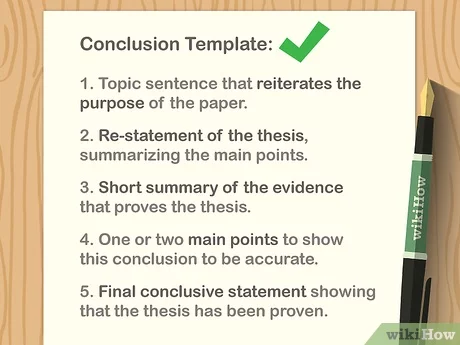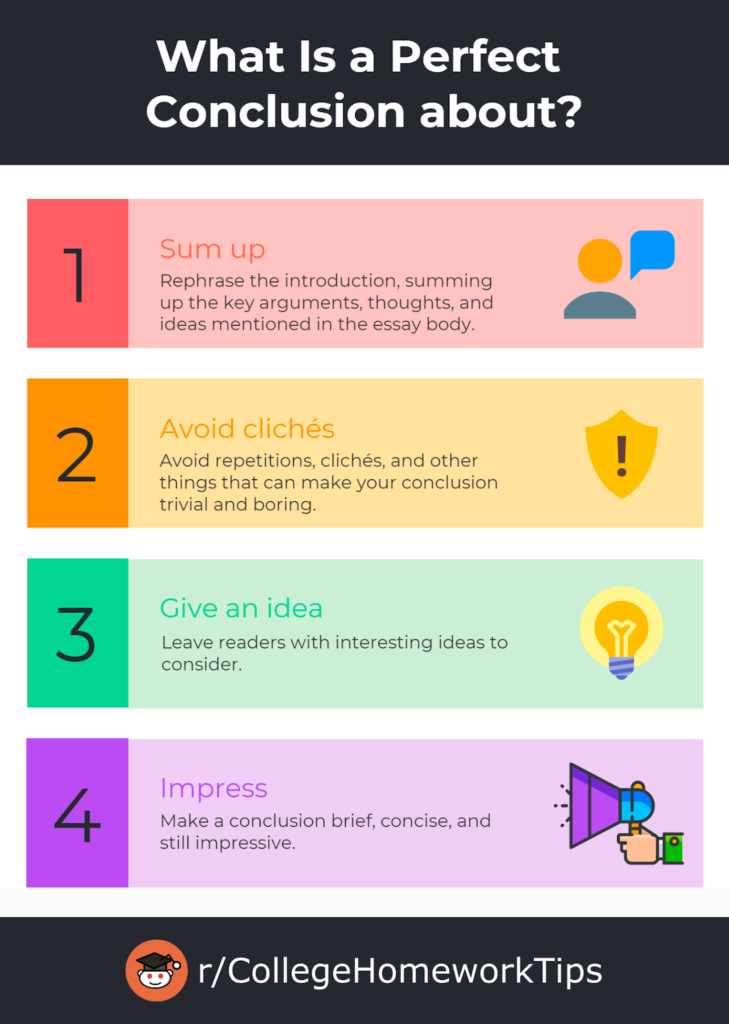
Writers often detest the last part of the writing process, i.e., writing a conclusion. For some authors, struggling with a conclusion is typically a worse problem than writer’s block or not being able to begin a writing piece.
Writing a conclusion is no easy feat. Add to this the fact that a conclusion sometimes comes at the end of the writing process when the writer is already quite tired; it just makes the job harder. You’re not alone; if you are here, you’re looking for writing tips for a better conclusion. This blog offers tips on how to write a conclusion. So let’s get started!
5 Tips on How to Write a Conclusion
Popular opinion may say that conclusions are irrelevant, but they serve an important purpose. Their significance is maximized, especially when you are writing a lengthy write-up because, by the end of it, the reader might have forgotten the main idea of your piece.
Conclusions essentially help bring the reader’s focus back to the central theme of your write-up. They allow you to sum up your thoughts, provide an ending, and offer a general feeling of completion.

There are many Internet tips on writing a better conclusion. We have curated the top five tips that will prove vital in helping you write a powerful conclusion.
1. Do not add any pictures.
Putting any visual media, let alone images, in the conclusion is an instant red flag. It can put off readers and will make your conclusion longer. A conclusion should be brief. If you have any important visual media to include, do it in the middle of the write-up.
2. Select five key ideas
This is an excellent tip if you do not know how to start a conclusion or are stuck without any ideas for a conclusion. You can do this while writing the post or skimming through it once you have written the main content. Select five key ideas or major lines that are essentially the crème de la crème of your write-up. Now, summarize these into a brief conclusion.
3. Keep it concise
A conclusion should not be more than 50-100 words. Remember that the reader has now reached the end of the write-up and might be looking for a quick exit. Endings should not be prolonged; they should be short and to the point.

4. Provide additional steps
If you wish to grab the readers’ attention through the conclusion, try providing them with the steps they can follow after reading the article. Perhaps add a call-to-action feature, link another article, or provide a video.
You can also describe what the reader should do next, even if you don’t have any media or links to share. For example, if your write-up is on the benefits of a compost pit, you can try asking the reader to start a compost pit of their own in the conclusion.
5. Leave it at a question
End your concluding paragraph with a question relating to the write-up’s crux. It should compel the reader to think hard and leave them with thoughts related to your write-up. That question can be so impactful that it might even make the reader give your write-up a re-read. Now, who would not want that, right?
In the End
We hope these tips help you write a much better conclusion. Just remember to keep it short and sweet, free from any visual media, and bring the focus back to the main topic of the write-up.

FAQs
Conclusions essentially help bring the focus of the reader back to the main idea or topic of your write-up. They help you in summing up your thoughts, providing an ending, and a general feeling of completion.
Putting any visual media, let alone images, in the conclusion, is an instant red flag. Many readers will be put off by it, which is why we do not recommend it. It will also make your conclusion longer.
Perhaps adding a call-to-action feature, linking another article, or providing a video can prove to be some great ideas for the reader.
A conclusion should definitely not be more than 50-100 words. Remember that the reader has now reached the end of the write-up and may be looking for a quick exit, just like you might be looking for one while writing.
Struggling with a conclusion is often a worse issue than writer’s block or not being able to begin a writing piece for some authors.
Latest Blogs
Explore how Google’s 2025 AI search updates triggered ranking chaos. Learn actionable strategies to adapt your SEO for AI Overviews, zero-click searches, and SERP volatility. Stay ahead now.
Learn how to rank on AI search engines like ChatGPT, Perplexity, and Gemini by optimizing your content for authority, structure, and relevance. Stay ahead in AI-driven search with this strategic guide.
Explore the best healthcare SEO services for your medical practice. Improve online visibility and effectively reach more patients in need of your services.
Get your hands on the latest news!
Similar Posts

B2C Marketing
5 mins read
Top Choices for Best Content Marketing Services in B2B Industries

Artificial Intelligence
5 mins read
How A Lead Generation Specialist Can Use AI-Powered Content Funnels to Drive Conversions

Artificial Intelligence
4 mins read